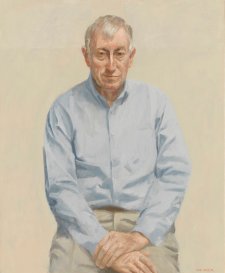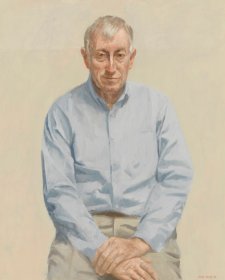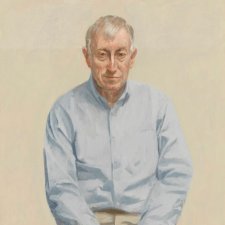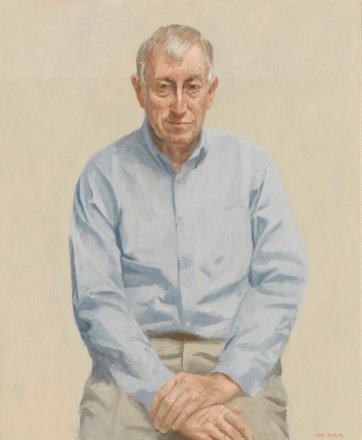Professor Peter Doherty: One of the things that kind of gets to me a little is we tend to stereotype people. And scientists are always stereotyped as being in the lab. And so you will see this picture over and over and over again, in newspapers and on television. There’s a report on science – this is the lab. The guy’s in the white coat, he’s looking down the microscope, or he’s got a pipette and he’s pipetting water from one thing to another. And it’s totally meaningless.
Firstly, nobody of that sort of seniority ever does that any more. It’s done by 20 year olds who are in the lab, and it simply says, “Well, this is someone who’s kind of different, you know. This is one of these nerdy science guys. We can sort of set them aside. They’re weird.” Right?
This is from Roy and HG, you know the two Australian comedians? It’s the year I was Australian of the Year, which was the year after the Nobel Prize in 1997, and I went on their show. They presented me with the Club Buggery Science Award, which is probably the first and last item that particular award has ever been given, so I’ve been very extremely proud of this somewhat phallic symbol, and I keep it prominently on display.
I trained originally in veterinary medicine. I’m the only Nobel Prize Winner to have ever trained as a vet, which was quite a good training for doing biomedical research, which means you just switch from working with sheep to working with mice.
This is literally an historical society of the University of Ireland, Dublin. But for a scientist to be offered an award from a literary and historical society’s kind of flattering. It was an odd invitation. I got this invitation by email from the students saying that “We want to give you this award, and various people have accepted it like Jesse Jackson and Jimmy Carter and so forth, but we have absolutely no money to pay your expenses and we can’t do anything for you.” So I went and visited when I was doing something else.
I guess the most exciting thing in my life was really the discovery that led to the Nobel Prize, and then getting the call at four o’clock in the morning when we were living in middle America telling us we’d won’t he Nobel Prize. The interval between those things is about 24 years, so it was a long discovery, a long excitement.
Related people
Related information



A Meeting of Great Minds
Magazine article by Simon Elliott, 2002The story behind Rick Amor's portrait of Professor Peter Doherty.



The Gallery
Visit us, learn with us, support us or work with us! Here’s a range of information about planning your visit, our history and more!



Support your Portrait Gallery
We depend on your support to keep creating our programs, exhibitions, publications and building the amazing portrait collection!





